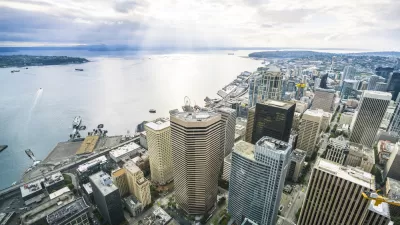The greater Toledo area needs to think harder about creating regional development if it wants to compete in the globalizing economy, according to this editorial.
"I want to know why some areas are making sustained economic progress, adding good jobs, attracting companies and drawing outside investment. Likewise, I also want to understand the obstacles that some cities face that keep them from enjoying similar success. The picture is increasingly clear."
"In an effort to answer these questions I've turned to some of the leading authorities on economic development. I've had opportunities to talk directly with several of them and to ask questions about what distinguishes successful metropolitan areas from the unsuccessful. I've read their books and papers and studied their research. They all have a lot to say. Many of them have different views and approaches. Some focus on 'talent,' while others focus on 'infrastructure,' 'incentives,' or 'community amenities.' However, one thing on which all agree and the theme stands out among all others in this complex field of economic development: A regional approach is needed."
"The strength and value of a regional approach to economic development has long been recognized by the U.S. Department of Commerce, Economic Development Administration (EDA). The 2007 EDA Symposia highlighted the fact that we are in a 'global economy' and that to successfully compete in this new environment, certain elements are 'required.' Topping their list is 'a regional approach.' Literally scores of case studies, comparative growth statistics, and the experience of professionals in economic development provide strong support for EDA's position on the value and effectiveness of a regional approach."
FULL STORY: Another look at regional development

Maui's Vacation Rental Debate Turns Ugly
Verbal attacks, misinformation campaigns and fistfights plague a high-stakes debate to convert thousands of vacation rentals into long-term housing.

Planetizen Federal Action Tracker
A weekly monitor of how Trump’s orders and actions are impacting planners and planning in America.

Chicago’s Ghost Rails
Just beneath the surface of the modern city lie the remnants of its expansive early 20th-century streetcar system.

Bend, Oregon Zoning Reforms Prioritize Small-Scale Housing
The city altered its zoning code to allow multi-family housing and eliminated parking mandates citywide.

Amtrak Cutting Jobs, Funding to High-Speed Rail
The agency plans to cut 10 percent of its workforce and has confirmed it will not fund new high-speed rail projects.

LA Denies Basic Services to Unhoused Residents
The city has repeatedly failed to respond to requests for trash pickup at encampment sites, and eliminated a program that provided mobile showers and toilets.
Urban Design for Planners 1: Software Tools
This six-course series explores essential urban design concepts using open source software and equips planners with the tools they need to participate fully in the urban design process.
Planning for Universal Design
Learn the tools for implementing Universal Design in planning regulations.
planning NEXT
Appalachian Highlands Housing Partners
Mpact (founded as Rail~Volution)
City of Camden Redevelopment Agency
City of Astoria
City of Portland
City of Laramie





























